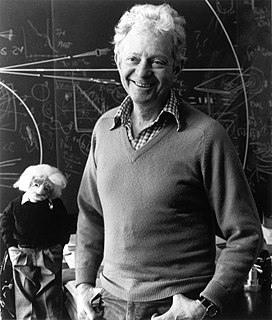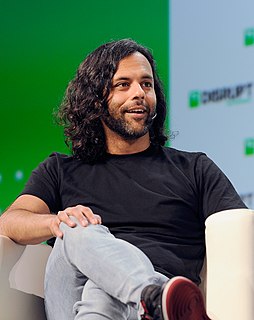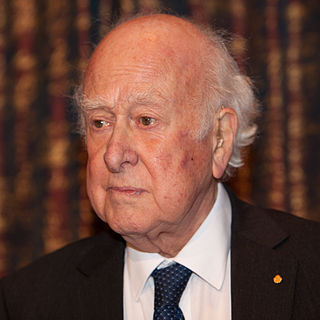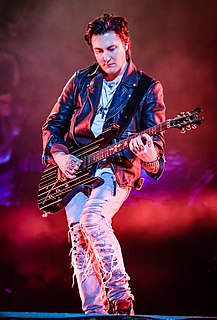A Quote by Leon M. Lederman
Theorists write all the popular books on science: Heinz Pagels, Frank Wilczek, Stephen Hawking, Richard Feynman, et al. And why not? They have all that spare time.
Quote Topics
Related Quotes
Brighter Than a Thousand Suns' by Robert Jungk and 'Surely You're Joking, Mr Feynman!' by Richard Feynman were both books my father purchased for me when I was in high school. Both left a lasting impression on me, because they chronicle the lives of some of the most creative scientists of the 21st century.
I made a film called "The Theory of Everything," which is based on Jane Hawing, who was married to Stephen Hawking - it's based on her book about their relationship.That's what the film will be about - they were both incredible, strong, willful individuals and I feel like that Stephen Hawking himself would say that he wouldn't have survived without the influence of Jane Hawking, and they were an incredible team together.
Our singer, Matt, was reading Stephen Hawking and other physics-related books, and I was reading entrepreneurial books, and we all started discussing the new technologies that were taking over the world, from 3-D printing to space travel. These conversations starting leading us to think of how we could portray these things in a musical way.
If you taught me to read and provided for me the same computer system as someone has provided for Stephen Hawking, I, too, would write great books. And yet you don't teach me to read, and you don't give me a computer stick I can push around with my nose to point at the next letter I wish typed. So whose fault is it that I am what I am?
The people who review my books, generally, are kind of youngish culture writers who aspire to write books, or write opinion pieces about what they think of Neil Young, or why they quit watching ER or whatever. And because of that, I think there's a lot of people who write about my books with the premise of, "Why this guy? Why not me?"

































